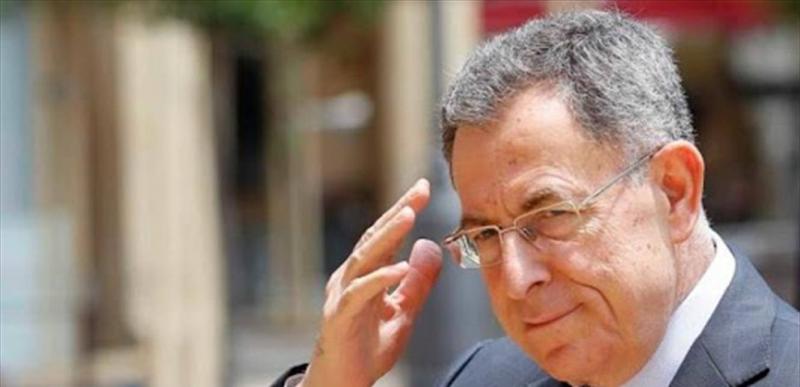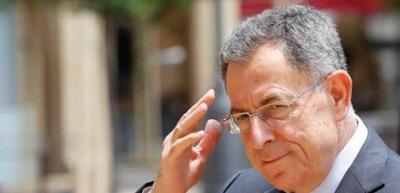The newspaper "Asharq Al-Awsat" reported that the electoral scene in Beirut's second district (which has 11 parliamentary seats) will not be complete until the registration deadline for candidates on March 15 is closed. This will verify whether it is possible to reshuffle electoral alliances and votes, or if it will end up with lists lacking candidates affiliated with the "Future" Movement, especially after its leader, former Prime Minister Saad Hariri, decided to refrain from running without calling for a boycott. He conditioned the resignation of "house members" belonging to the Future Movement if they choose to participate, while giving current independent members of his bloc the freedom to run at their own risk.
The ambiguity surrounding the electoral battle in the Sunni-majority Beirut II district remains until the general direction of the stance previously announced by former Prime Minister Fouad Siniora crystallizes, calling for participation in the electoral process to thwart the vacating of the arena for those orbiting the "Resistance Axis" led by Hezbollah, Iran's strategic ally, in line with certain political forces loyal to it despite their claims of opposing its project, which contradicts the state-building initiative.
Sources informed "Asharq Al-Awsat" that while President Siniora has distinguished himself from Hariri by calling for candidacy, he continues his meetings in coordination with Prime Minister Najib Mikati, while preparing to engage with former Prime Minister Tamam Salam, who was early in announcing his abstention from running. Siniora believes there is a need to restructure the situation in the Beirut street based on gauging the opinions of relevant leaders in the second district regarding the possibility of nurturing efforts aimed at forming a candidate list that would enjoy popular support in Beirut and can fill the void left by the Future Movement's withdrawal from the elections.
President Siniora focuses on attracting the overwhelming popular base behind Hariri, in addition to Salam's role in securing an electoral lift that can unite his supporters and those of Hariri, whether they belong to the Future Movement or its affiliates. This effort cannot overlook the injustices that have been imposed on Hariri, resulting in the return of many of his supporters who had previously criticized him for entering into a settlement with President Michel Aoun, who later turned against him, leading to his resignation from forming the government.
In this context, Siniora initiates his efforts to support the formation of a candidate list in Beirut II in collaboration with a group of Beirut figures, stressing the importance of respecting the "red lines" of not allying with the "Shiite duo" (Hezbollah and AMAL Movement). The same applies to the "Islamic Welfare Projects Association" (Ahdash) and MP Fouad Makhzoumi, who is running on a list outside of these alliances and has already launched his electoral campaign with giant red banners saying "Beirut in the heart."
Siniora is also in contact with former Lebanese ambassador to the United Nations Nawaaf Salam, who currently holds a permanent membership in the International Court of Justice in The Hague, although he remains hesitant to finalize his candidacy. He is evaluating options for running or abstaining, preparing to clarify his position before the closing of the registration, despite some claims that he is preparing to return to Beirut for a round of consultations.
Furthermore, sources from Beirut indicate that a group of figures loyal to Hariri, some of whom are from the older guard of the Future Movement without abandoning their connection to him, are regularly meeting away from the limelight. They are preparing for their final stance, which they intend to announce before the registration deadline, balancing between supporting the formation of a list to prevent the takeover of rivals with state-building projects and remaining neutral.
It has been noted that some figures in these meetings are not in rupture with Siniora due to shared interests, although others subtly criticize the former Prime Minister because of his call for electoral participation. Additionally, it is expected that the Progressive Socialist Party's candidate, current MP Faisal Al-Sayegh, could run on a possible agreed-upon list against the others unless Speaker Nabih Berri convinces his ally Hezbollah not to nominate another Druze candidate on their joint list, which current MP Talal Arslan names.
On another front, the civil movement and its various groups have not yet engaged in the electoral fever due to their focus on intensifying consultations to unify their stance on running with a single list and a political action program. Meanwhile, the Shiite duo awaits the final decision from the Ahdash to determine whether it will engage in a coalition or run independently, although Beirut sources previously stated that the Ahdash decided to pursue its electoral battle without alliances.
The Beirut sources attribute this decision to the fact that although the Ahdash is part of a political alliance with the Shiite duo, it is not keen on electoral cooperation for two reasons: first, that voters living abroad and affiliated with the projects hope to avoid alliance with Hezbollah due to fears of persecution and sanctions against them personally and their affiliated institutions in several European countries, especially Germany and the United States, since all these countries have listed Hezbollah as a terrorist organization.
The second reason relates to the existence of a faction within the Ahdash that prefers not to collaborate electorally with Hezbollah or stick to it at this stage, as it hopes Hariri's abstention from running will create an opportunity for breakthroughs within the Future Movement that could enhance its chances of gaining electoral currency.
In light of this situation, the Shiite duo is waiting to hear the Ahdash's final decision, despite the latter having promoted its amicable separation from its permanent allies, the AMAL Movement and Hezbollah, without completely abandoning its political support for resistance.
Furthermore, Hezbollah has reportedly reached agreements with its allies regarding the outlines of their electoral cooperation, which currently involves running on a unified list in the Baabda-Metn southern district, and another in the Baalbek-Hermel district, with future discussions planned for their alliance in Beirut II, despite the challenges in gathering AMAL and the Free Patriotic Movement on a single list in the Bekaa-Western Rashaya district.
According to reports, AMAL and Hezbollah had reached a formula for their electoral-political alliance whereby Hezbollah would support AMAL's candidates in Jezzine and western Bekaa, while the latter would back Hezbollah's candidates in Jbeil-Kesrouan and Zahle, considering that there are no issues with their alliance in constituencies with a Shiite majority, either in the South or in Baalbek-Hermel, while granting freedom to their voters in constituencies lacking Shiite representation.




